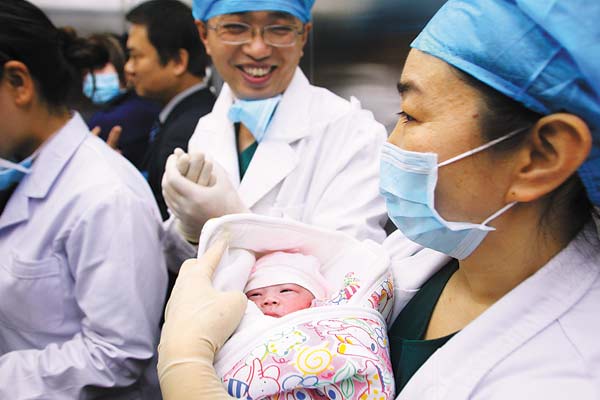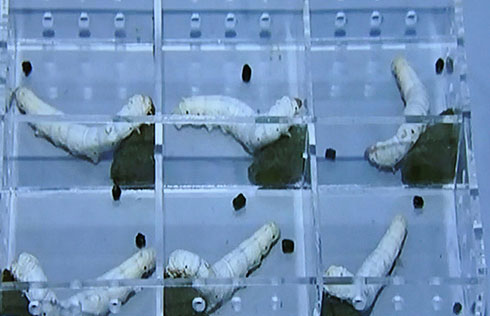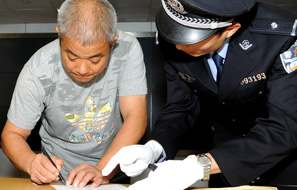Mother and baby doing fine after risky surgery
A woman with spinal muscular atrophy gave birth to a premature boy in Beijing on Wednesday. The mother and the son remain in the hospital under close observation.
Lu Yuanfang, 31, was transferred to the operating room at about 8:30 am to have a Caesarean section under general anesthesia. Surgeons delivered the baby an hour later.
 |
|
Doctors at a Beijing hospital proudly display the baby of Lu Yuanfang, who has spinal muscular atrophy. The birth marked a medical first in China. [Photo by Zou Hong / China Daily] |
The baby, who does not have the gene defect that causes SMA, was less than 36 weeks old, and weighed 2.85 kilograms, because the mother had gestational diabetes, according to Gao Guolan, chief surgeon for Lu and president of the Aviation General Hospital where Lu is a patent.
The hospital did the surgery early because Lu's amniotic fluid had been decreasing, and she had been suffering serious breathing problems due to the size of the baby, said Gao.
"Right now, the baby is OK. But we need to watch him closely for any lung problems due to his premature birth," she said.
Before Lu, there was no academic report of women with muscular atrophy giving birth in China. Doctors had made plans for every risk they could anticipate, according to Gao.
"We were concerned that her uterus may not be able to contract during the surgery, because she has SMA. If such a thing had happened and led to a hemorrhage, we would have had to remove her womb. But fortunately her womb was fine," she said.
Also, fearing that anesthesia may cause malignant hyperthermia, a fatal muscular problem, the hospital said it had bought dantrolene, the special medicine to treat it that is not available in the Chinese market, from outside the country.
Though the surgery was successful, the hospital is keeping a close eye on Lu in the ICU for any health problems.
Her condition made the surgery much riskier than other Caesarean sections.
In order to avoid risks such as a possible violent change of blood pressure caused by regional anesthesia, surgeons decided to conduct general anesthesia on Lu, a kind of anesthesia that depresses a patient's respiratory system, according to An Jianxiong, the anesthetist for the surgery.
But Lu cannot open her mouth wide enough and had a chest deformity, making it hard for doctors to place the ventilation tube in her throat, he said.
"It would have been very dangerous if she hadn't been able to breathe in time under anesthetics," said the anesthetist.
Lu was very happy about the baby, said Gao.
"When she woke up and we told her she gave birth to a boy, she cried and thanked us," she said, adding that the case provides "very meaningful" experience for doctors conducting similar surgery in China in the future.
























